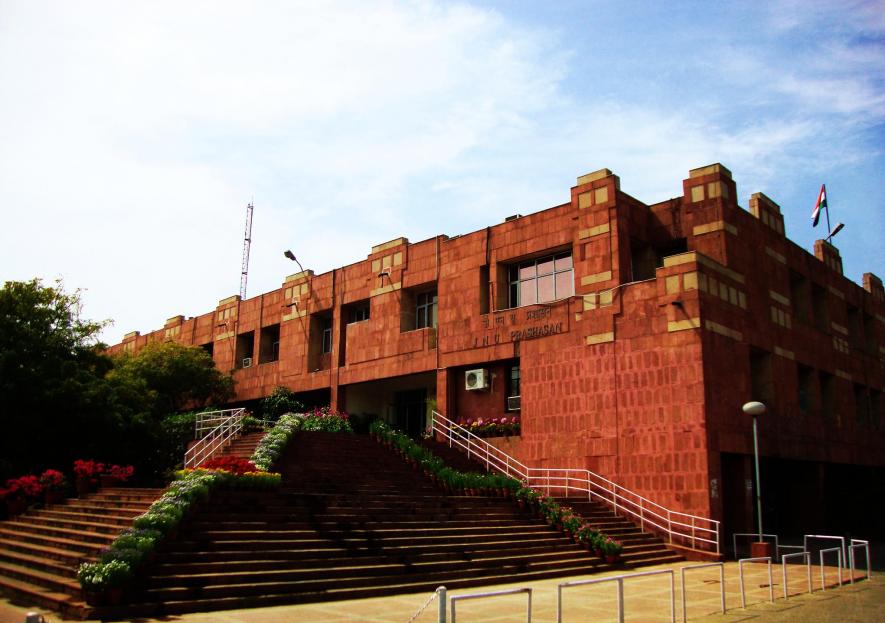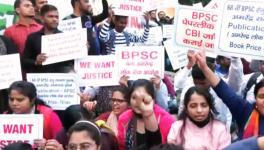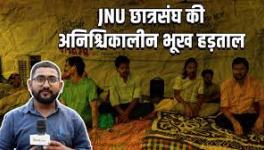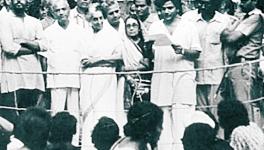JNU: In Closed-door IHA Meeting, Admin Introduces Massive Hike in Hostel Fees

"How should I respond if the government hikes hostel and other fees? Do I have any choice but to submit to it even when my family can hardly afford the fees," these were the words of a student enrolled in M.A. in Political Science at Jawaharlal Nehru University. They reflect the sentiments of several students hailing from humble backgrounds, who were protesting over the tremendous hike in hostel and mess fee at the prestigious university. In a closed door Inter-Hall Administration (IHA) meeting, the JNU administration gave its nod to the new hostel manual which many students have termed as "exclusionary".
Under the newly passed provisions, the hostel fee was reportedly revised from Rs 10 to Rs 1,500 per month. Additionally, they will be charged for electricity and water too. Similarly, the mess fee have been also revised. The changes, many students suspect, will force students out of studies.
Shubhojit, a PhD scholar at the Centre for Study of Regional Development, told NewsClick that a majority of students at the university hail from lower middle class families and the fee is tantamount to denying them access to education. He said, “I checked out the previous years’ annual reports of the university. In one of the reports, the university has accepted that almost 60% students hail from families with incomes below Rs 1 lakh per annum. In this situation, the administration is asking the students to pay almost Rs 4,200 per month. If we multiply it with 12, we find that a sole student will have to pay Rs 50,400 per annum. Can these families afford this amount?”
Also read: Fee Hike in JNU: Another Attack on Higher Education
Another student who requested anonymity said, "My father sells clothes at a weekly haat (market) in Birbhum district in West Bengal and hardly earns Rs 500- Rs 700 to support our family. I came to the university with the assurance that I will not have to pay much for my studies as I could pay my bills with merit cum means scholarship. Now, with this fee, how will I continue my studies?"
But the students’ struggle is not only limited to the fee hike alone. The new manual also comes with renewed guidelines which effectively ban the movement of students after 11:00 PM. Clause 2.5.2 of the new manual reads, "The residents should be back in their respective hostels latest by 11 PM or by half an hour after time for library closing, whichever is later. Students who are found outside their respective hostel premises after the stipulated time and involving in any violence or otherwise disturbing the peace on campus and privacy of JNU community will be evicted from hostel forthwith, apart from any other disciplinary action by the University."
Similarly, it also bans the entry of women scholars in men's hostels and vice-versa. Clause 2.5.5 read, "Male visitors including male students or guests shall not be allowed in girls/women hostels except that bonafide male guests may be permitted by Mess Warden in the dining halls of girls’ hostels. Similarly, female visitors (including girl students) may not be allowed in the dining halls of Men's Hostels.”
Also watch: JNU Students Protest Against Infrastructural Crisis
Commenting on the changes, former president of JNU Students’ Union, N Sai Balaji said that the changes alter the character of the university. He said, “JNU, being a public-funded university is now getting privatised, and the brunt will be borne by non other than students from SC (scheduled castes), ST (scheduled tribes) and OBC (other backward castes) communities. For example, Section 2.2.5 of the current Hostel Manual, which contained the constitutionally mandated scheme of reservations, along with the policy of priority hostel allotment to SC/ST students is completely missing. Annexure III, IV, V, VI, VII, X, and XI containing the specific details of application of reservation policy for OBC and PH/VH (physically handicapped/visually handicapped) students has been completely removed. Now, where will these students go as the campus is already struggling with deficit of hostels? Apparently, the administration has no answers.”
Get the latest reports & analysis with people's perspective on Protests, movements & deep analytical videos, discussions of the current affairs in your Telegram app. Subscribe to NewsClick's Telegram channel & get Real-Time updates on stories, as they get published on our website.
























